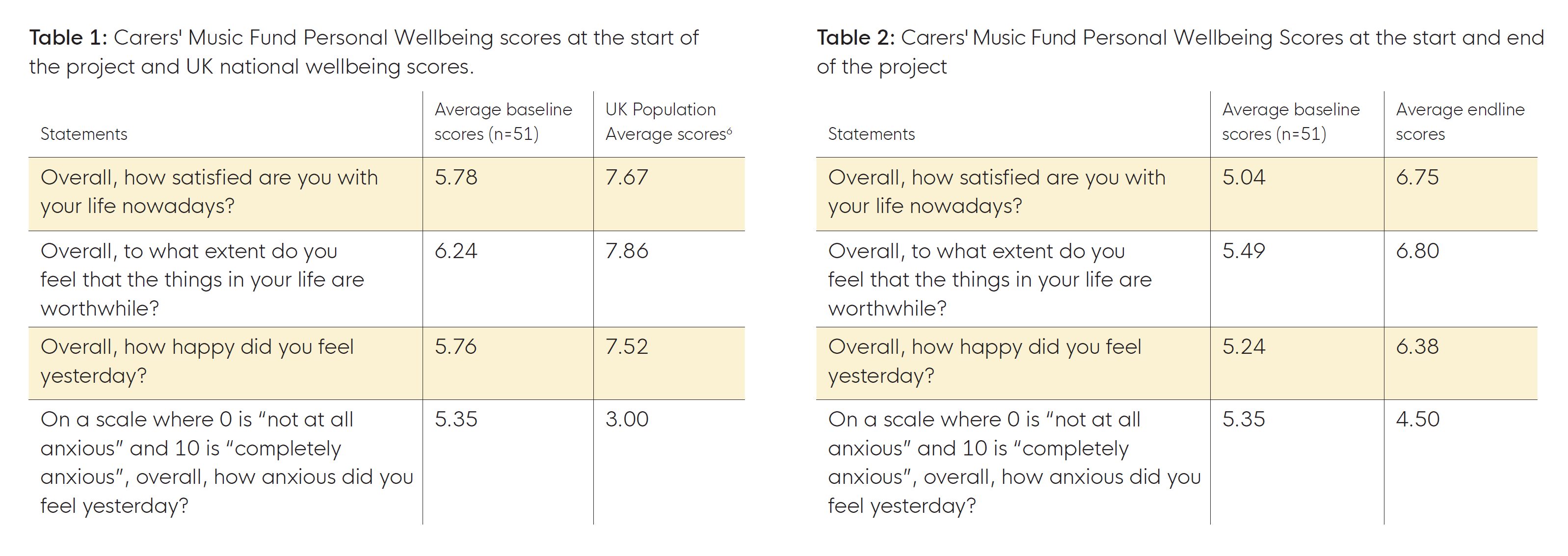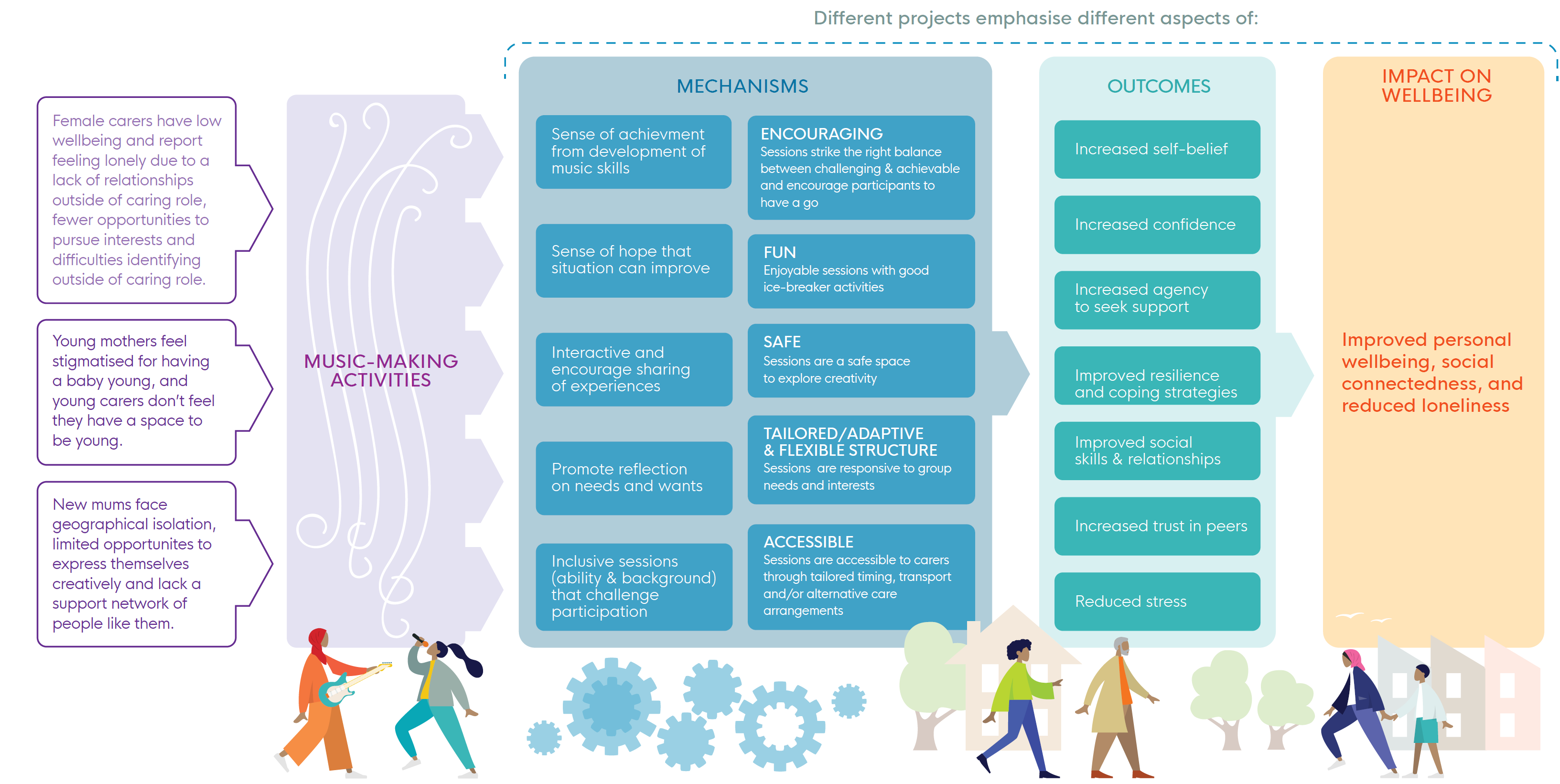Carers’ wellbeing: how can projects support women through music-making?
Today we publish the first in a series of learning insight reports on the Spirit of 2012’s Carers’ Music Fund projects – When we sing it sounds like there are more of us: Findings from the first cohort of the Carer’s Music Fund
In 2019, 81% of carers declared they felt lonely or socially isolated as a result of their caring role and felt nearly twice as anxious as the general population. These projects have been engaging female carers across the UK in music activities with the aim of reducing loneliness, improving their mental health and wellbeing, and challenging gendered perceptions of caring.
You can read more about how projects sustained a wellbeing focus through the pandemic in our special focus practice example.
The Centre is leading the Fund’s Learning Partnership, working alongside programme evaluators, Apteligen, the Behavioural Insights team and Carers UK, to ensure that the awarded projects ground their work in the latest research on wellbeing and loneliness.
The report is based on data collected between October 2019 and March 2020, prior to the Coronavirus pandemic. Thinking ahead, the Fund’s evaluation activities will help inform an increasingly complex post-Covid-19 landscape which poses new challenges for the delivery and evaluation of wellbeing interventions.There are still evidence gaps about what works to improve the wellbeing of carers, despite this group’s consistently lower wellbeing compared to the national average.
“The project showed me that even though I feel like I can’t do it and ..say I can’t do it (performing in front of other people), I can always do it” CMF beneficiary
Key findings
- By the end of the first cohort, the average wellbeing of female carers participating had improved across the personal wellbeing measures, particularly for life satisfaction, feeling worthwhile and happiness.
- Overall, improvements were larger among adult carers and carers who were not working, while for young carers, life satisfaction improved more than any other personal wellbeing measure.
- Improvements were smaller for full-time carers, likely reflecting the considerable caregiver burden faced by this group.

How wellbeing improves: the Fund’s Theory of Change
Why is the Fund’s programme evaluation framework making these positive impacts? The theory of change below maps out the core wellbeing outcomes and factors that help explain the lower wellbeing and social isolation experienced by carers as they progress through a 12-week programme of activities.

Carers and wellbeing
Evidence from the Centre points to a range of health and wellbeing benefits of structured music and singing interventions, in particular, to reducing loneliness, anxiety and depression in older adults.
For groups experiencing – or at risk of – social disadvantage and discrimination , singing in a collective setting appears to facilitate relationship-building and increase engagement with the community. Among healthy adults, being a member of a music ensemble can also enhance subjective wellbeing and may provide a vehicle for identity construction.
In other evidence, social loneliness, defined as the quality and quantity of social relationships, has emerged as a key theme in studies of informal caring. Some of its likely causes are the restrictions imposed by the caregiving role itself, including reduced personal space as well as relationship deprivations and a sense of powerlessness.
Want to keep updated on our work on carers' wellbeing?
Sign up here to receive our upcoming podcast and more evidence and insight, when they are published.
